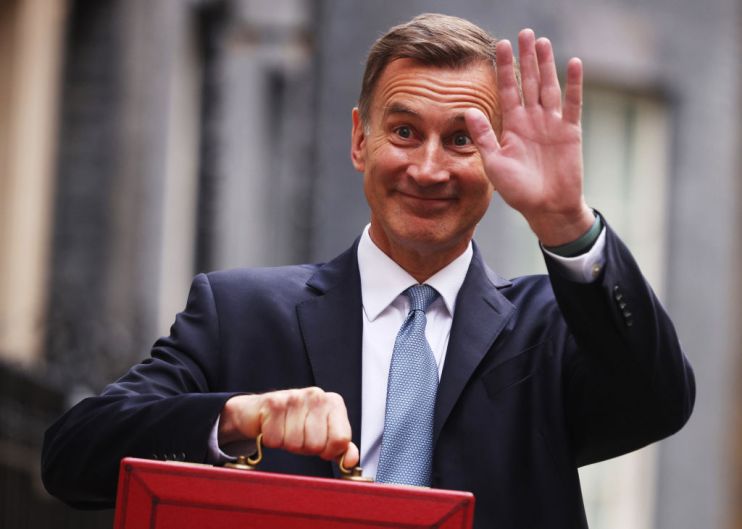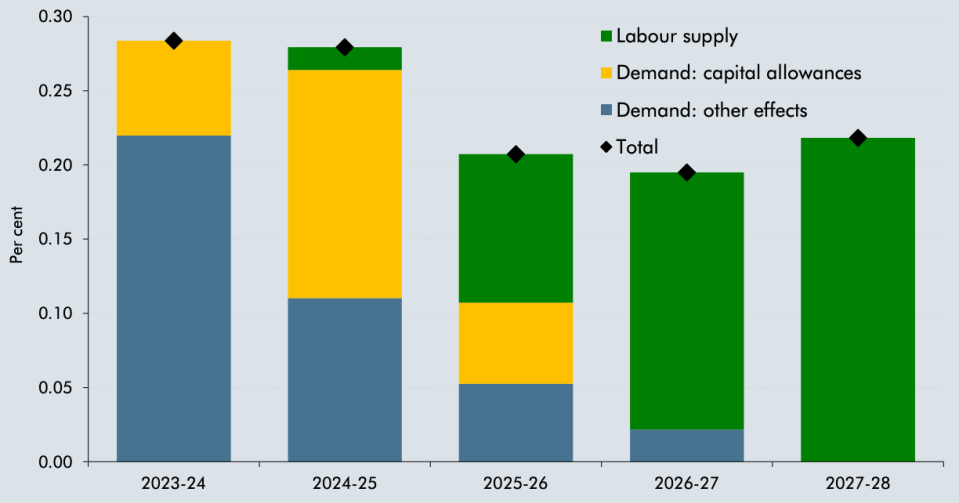Budget: Why Jeremy Hunt needs you back at work to prevent a recession

This was a budget for the workforce.
It showed signs of sparking the supply side revolution that Liz Truss championed, but crashed hard in trying to get there too quickly.
The Office for Budget Responsibility (OBR) thinks so. It projects the government’s collective policies designed to boost the labour market will provide a 0.2 per cent GDP boost, the biggest ever since the organisation was created by former Chancellor George Osborne in 2010.
Most of the major policies announced by the Chancellor today weren’t designed to lift the incomes of individuals (except the fuel duty freeze, but that always happens).
The usual 1p off a pint. Raising the income tax free allowance. Slimming VAT.
All those policies didn’t even get a sniff today.
Instead nearly everything in this budget was aimed at expanding the size of the country’s labour force and boosting its productive capacity, among the key goals of supply side reforms.
Take the childcare changes. Most families can now get up to 30 hours of free childcare a week for kids aged nine months and up to five years, an expansion of the old support.
That will be a big hand to families that have held back the amount of hours they work or how hard they work to care for their kids, raising their earnings potential and keeping them in the workforce for longer.
The measure should specifically help women – who, despite progress, still shoulder most of the childcare burden – stay in the workforce at a time when their earnings have the potential to grow rapidly.
OBR reckon Hunt’s measures provide biggest GDP boost of any Chancellor since 2010

There’s a quirk in the new system now though that more people who receive a £1,000 pay rise, taking their wages over £100,000, could actually be worse off – maybe by more than £20,000 because they will have to shoulder the entire cost of a nursery.
Maybe the threshold at which the support ends needs to be raised, although that should be balanced with the fact that households with a +£100,000 earner can probably afford childcare support.
By the most challenging supply side problem the government faces is the sharp rise in people leaving the jobs market altogether. There’s no sign of that trend letting up.
Figures yesterday from the Office for National Statistics showed that the number of people economically inactive due to long-term sickness jumped again over the last three months.
Measures thus far – including scrapping the pensions lifetime allowance altogether – have targeted people who are on the cusp of retiring. It seems fruitless to try to get these people to stay in jobs as they are likely to already have the resources to maintain a comfortable retirement.
Yes, the cost of living crisis may force some of the margin back into the job. But not enough to reverse the inactivity rise.
Investment reliefs to soothe a big corporation tax rise – to 25 per cent from 19 per cent – was needed to boost capital spending, which has tanked since Brexit. That was a no brainer.
In sum, Hunt targeted fortifying the plumbing of the economy today, a welcome shift from marginal tweaks to small fry taxes.
This all comes against the backdrop of a series of economic crises that the Conservatives have argued have tied their hands. More will surely need to be done to help them cosy up to voters before the next electron.
Remember Labour was (wrongly) blamed by them for causing the financial crisis via economic mismanagement. That doesn’t quite add up.